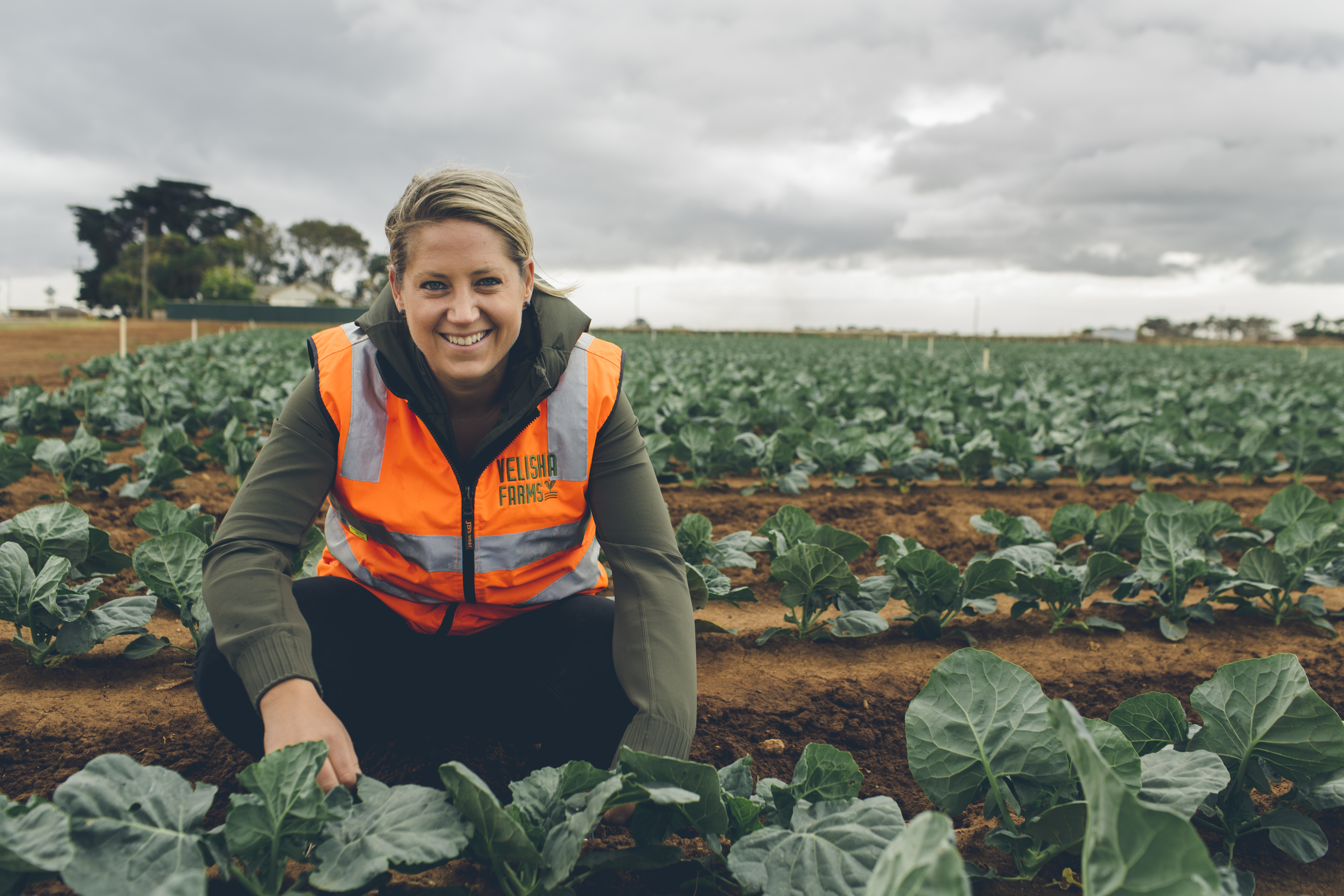Catherine Velisha: Business owner on the rise
From working in her father’s packing facilities and the wholesale markets during her 20s, to becoming Managing Director of the family business Velisha Farms in her 30s, Catherine Velisha has certainly taken her career in the vegetable industry to the next level. Catherine spoke to AUSVEG about the challenges, opportunities and the future direction of the business.
Fast facts
Name: Catherine Velisha
Location: Werribee South, VIC
Works: Velisha Farms
Grows: Cauliflower, kale, Brussels sprouts, wombok, broccoli, herbs, onions, tomatoes, zucchini, cucumber and potatoes.
Catherine Velisha thrives on a challenge. At just 34 years old, the Velisha Farms Managing Director oversees a number of Victorian growing operations as well as a large packing facility in Werribee South, employing between 70-80 staff across all facets of vegetable production.
Catherine is the third generation of her family to embark on a career in the horticulture industry. Her father Veli Velisha was a vegetable grower who traded in the wholesale market until Catherine took over the reins in 2016. Since then, in addition to the Werribee South operation which continues to grow broccoli, cauliflower and iceberg lettuce, she has acquired land in Tatura in northern Victoria to grow zucchini in the summer and brassicas throughout winter. Another farm at Caldermeade, 70 kilometres south-east of Melbourne, produces bunch lines including spring onion, kale, coriander and parsley, as well as lettuce, celery and brassicas throughout the year.
As Managing Director of the business, Catherine’s role is varied – from inspecting crops in Tatura to working in the packing facility in Werribee South, no day is the same. There is also another important aspect that is attached to the Managing Director role: leadership.
“My vision is to create a model of continuous improvement, growth and expansion, creating an environment and business that gives endless opportunity to its people, enabling them to reach their full potential,” Catherine says.
“What I enjoy most about this business is the leadership and giving opportunities to my peers and teammates; to see them blossom and take on challenges.
“I really like spotting the talent. I’ve found that as soon as I’ve given people chances, they’ve really taken it on-board. I like the strategic side of the business; the angle of where we’re going to take it, creating a team and allowing them to work the vision.”
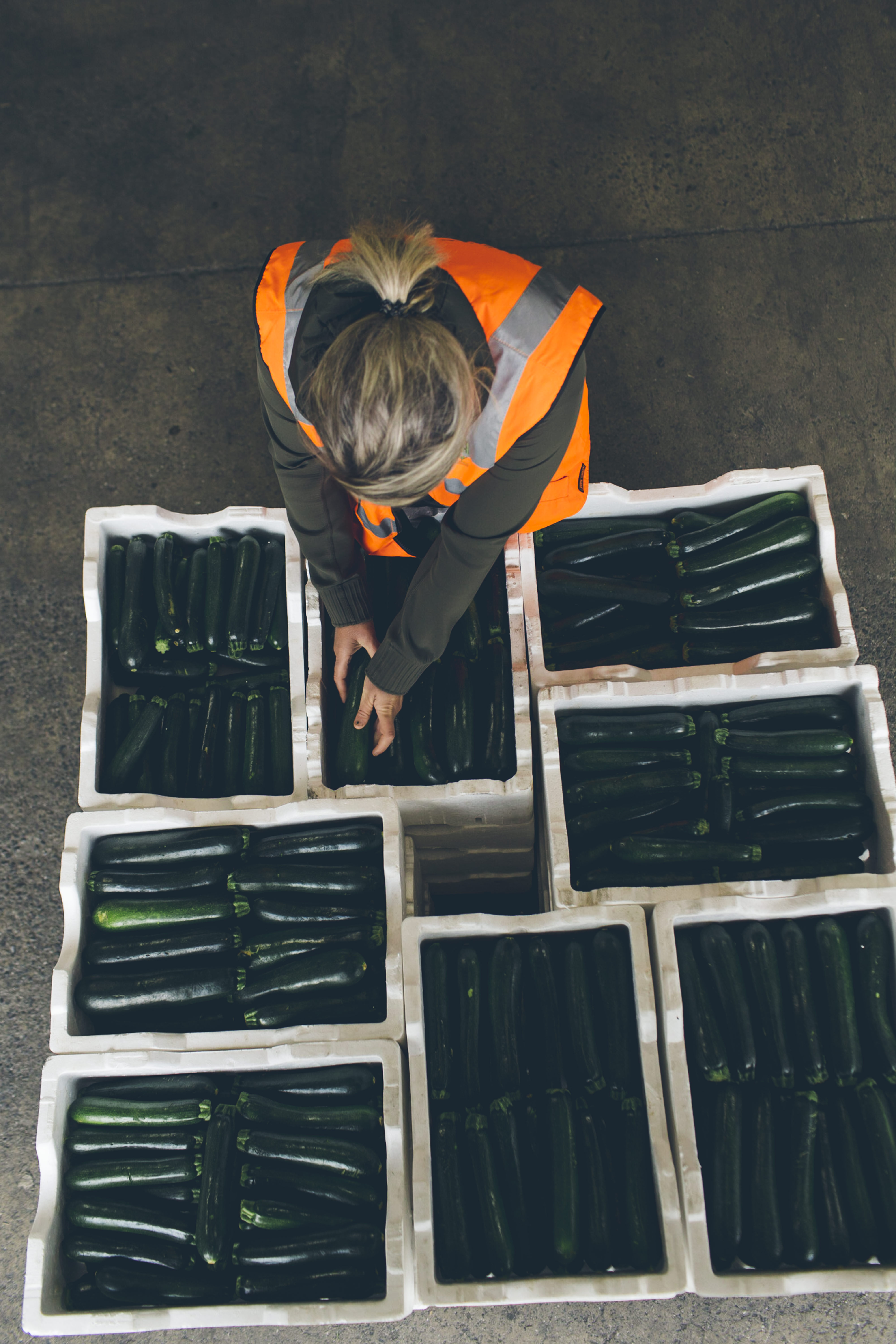
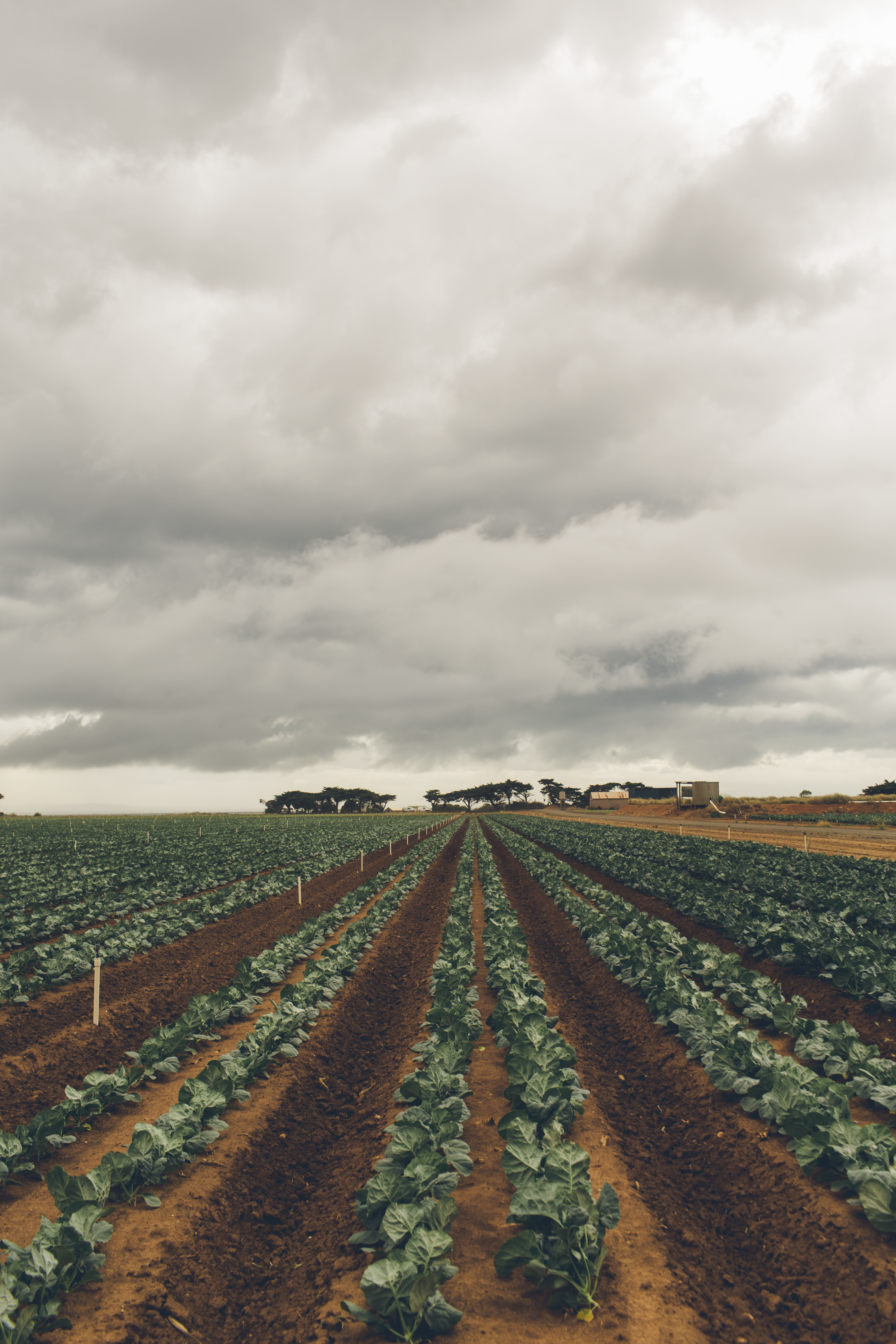
Ongoing sustainability
All growers have their challenges, and Velisha Farms is not immune to obstacles. This includes rising costs of water and electricity, attempting to minimise waste while adding value to produce, and of course, the weather – at the time of writing, extreme heat during January and February had diminished the quality of some crops.
Trying to combat these challenges can be tricky, but there are ways to minimise their impact.
“We’re looking at many different ways of using our out-of-specification products to drive value, so that’s through processing and products such as florets or spiralising zucchini,” Catherine explains.
“Our goal is to create a zero waste culture. We strive to do this daily, and work in conjunction with teams such as Foodbank to make sure we are reducing our negative footprint on the world.
“Solar is the natural step to sustainable energy and although we haven’t started that yet, it’s something we’re definitely looking at.”
Velisha Farms is continually looking to maintain disease resistance and ensure the farm is environmentally sustainable. This includes performing crop rotations and working with agronomists who provide recommendations on using organic matter and green manure to get the best out of the soil.
Since working with her father as a child and throughout her 20s, Catherine has seen many changes to vegetable growing practices.
“Everything has become a lot more professional and farming is a corporate business. There’s more importance placed on food safety and as a business, there’s much more emphasis on our quality systems and OH&S systems,” she says.
“We have a team in quality assurance and quality control working across all the farms and the facilities; we have seen this as an opportunity to add another layer to what we do.”
These days, Catherine says there is a lot more money invested in equipment and machinery including packing lines, belts and harvesters. The driving force behind this trend is growers striving for greater efficiencies within their business.
"What I enjoy most about this business is the leadership and giving opportunities to my peers and teammates; to see them blossom and take on challenges."
Further opportunities
Catherine has identified export as a major focus for her business into the future. Currently, Velisha Farms exports a small amount of produce to Asia through an agent, but she would like to see her business expand in this space.
“Australia is a small market comparatively to the rest of the world,” she says.
“Also, our market is dominated by some bigger players which sets the tone and the value for some products – and there are opportunities in other countries where that’s not as prominent. I think it’s just a natural evolution: as you grow, as you improve, as you increase – if that’s in your mentality – you want another challenge.”
Another opportunity that the business can seize upon is the rise in veganism in Australia.
“Veganism is a big trend and I can see that continuing. The kind of products that will be developed for that group in our society – I think there’s a lot of opportunity there,” Catherine says.
Investigating value-added meals and product development are also high on the agenda.
“As we all become more time-poor and become more accustomed to it, I think there are so many opportunities in that space both here in the local market and in the export market. And that’s probably the direction we’ll be focusing on the most,” Catherine says.
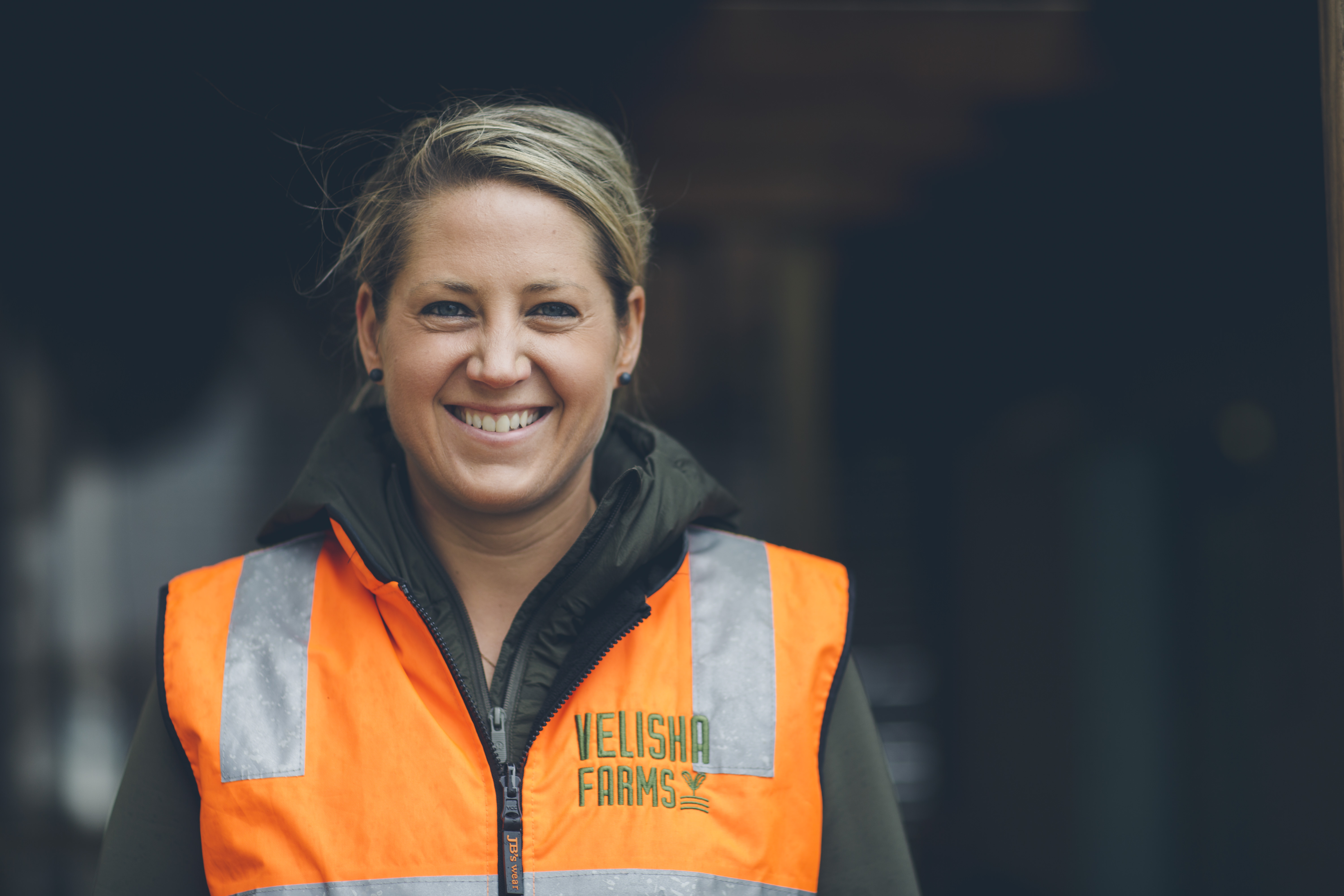
A team effort
While it’s not always easy to run a business, particularly when facing so many challenges both on- and off-farm, Catherine has praised her operation’s ability to continue to evolve and adapt while making decisions to best reflect the external environment.
“I’m proud of our agility and our ability to adapt to changes in the market,” she says.
“The relentlessness creates a bit of a fun environment because you’ve really got to pull together. I do like the banter and the challenging aspect of it because I think it creates quite a good dynamic, and the people that are attracted to that are similar to me, so it can be quite fun at times.
“My staff see opportunities in the challenges. I think when you’re faced with a challenge constantly, you can’t see that there’s anything else. But when it’s new to you, then it’s not so much a challenge – it’s more of an opportunity. I feel like a lot of the team have that mindset, which is fantastic.”
Catherine also has a fitting reflection of the vegetable industry.
“I think we just all need to stay positive because it can be a trying business – not just farming, but the entire supply chain. Everyone who does this business gives a lot of their life and spirit to it, and I think that should be commended.
“I think this is remarkable and probably doesn’t get noted enough. The price of produce doesn’t reflect the sacrifice of a lot of people.”
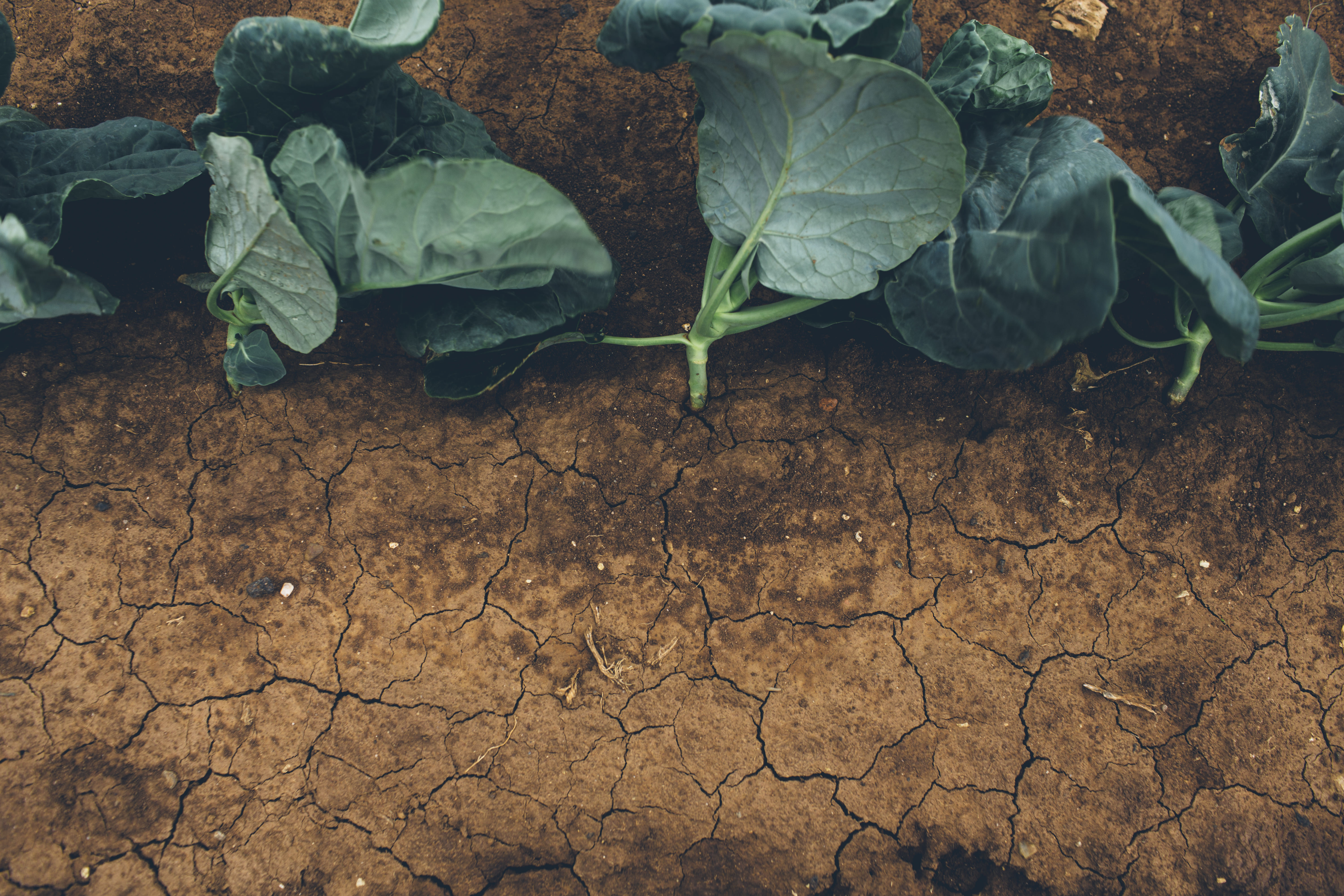
This grower profile first appeared in the leading magazine for the Australian vegetable industry, Vegetables Australia. If you’d like to subscribe to receive a new edition of Vegetables Australia in your mailbox every two months, use our online subscription form!

